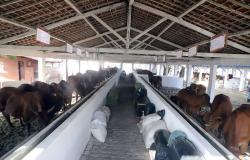The expansion of capitalist agriculture in Mato Grosso in recent years was discussed this Thursday (25) during the 7th meeting of the Thematic Sector Chamber (CST) of the Mato Grosso Regional Development Forum. The explanation of the topic was made by Rodrigo Matheus da Silva. The chamber was requested by deputy Thiago Silva (MDB).
Rodrigo Silva is coordinator of Agricultural Market Intelligence at the Mato-Grossense Institute of Agricultural Economics (Imea). According to him, one of the points that favored the expansion of the agricultural sector in Mato Grosso was the Kandir Law (exempt from paying ICMS for exports of primary products).
“The fact is that Mato Grosso is a large exporter of commodities, when we look at the state’s GDP (Gross Domestic Product), more than 56% came from this sector. Over the years, there has been a growth in GDP per capita in Mato Grosso. But it is clear that GDP is an indicator and, with this, it shows that there has been an advance in the social and economic capitalization of all sectors”, stated Rodrigo Silva.
The Imea representative also said that the agriculture and livestock segment has several agribusiness plants spread across the Mato Grosso territory, which are generating employment and income for the population and tax revenue for the state. “Among the segments that employ in the state are slaughterhouses, soybean crushing plants and more recently the installation of the corn ethanol industry”, explained Rodrigo Silva.
Asked about regional inequalities, even though agribusiness in Mato Grosso is responsible for the largest GDP in the state, the coordinator stated that the state needs to improve logistics to distribute the wealth produced in all regions of Mato Grosso.
HOT NEWS – Access the Isso É Notícia group on WhatsApp and get news in real time (CLICK HERE)
“Depending on the work, it will generate local employment, during its construction, to maintain it and also to sell its production. This reduces the shipping cost. This will stimulate investment by producers in the region. It is a state act, whether you like it or not, it has to come from the State”, replied Rodrigo da Silva.
The CST rapporteur, Benedito Dias Pereira, stated that capitalist agriculture has a different role in relation to that undertaken by family farming in Mato Grosso. According to Pereira, large property is based on the capitalist structure. “It is driven by profit and the expansion of its surplus. The new markets, discovered and expanded especially in China, show this. As long as this happens, capitalist agriculture will grow even more in the state”, said Pereira.
For him, the agricultural surplus could occur in the expansion of agro-industrial activity and also in pure industrial activity. “Unfortunately, the economy of Mato Grosso has a predominance of capitalist agriculture. Therefore, the reduction in industrial activity is visible. It is necessary to reflect on integration with other economic activities, to expand the industry throughout the state”, said the CST rapporteur.
According to Benedito Pereira, the main obstacle for Mato Grosso to align the economy with industrialization is the Kandir Law. “It exempts primary and semi-finished products. The absence of exports increases the agricultural surplus. With this, the previous reflection of the state that contributes to the expansion of agriculture returns. This surplus could help reduce inequalities, stimulating industrialization in Mato Grosso,” said Pereira.
Report – At the end of the work, CST will produce a report that summarizes the proposals from all segments that participated in the meetings. The focus is to present suggestions aimed at creating public policies with the aim of reducing inequality and poverty throughout the state.
Tags: CST meeting discusses capitalist agriculture Mato Grosso
--





